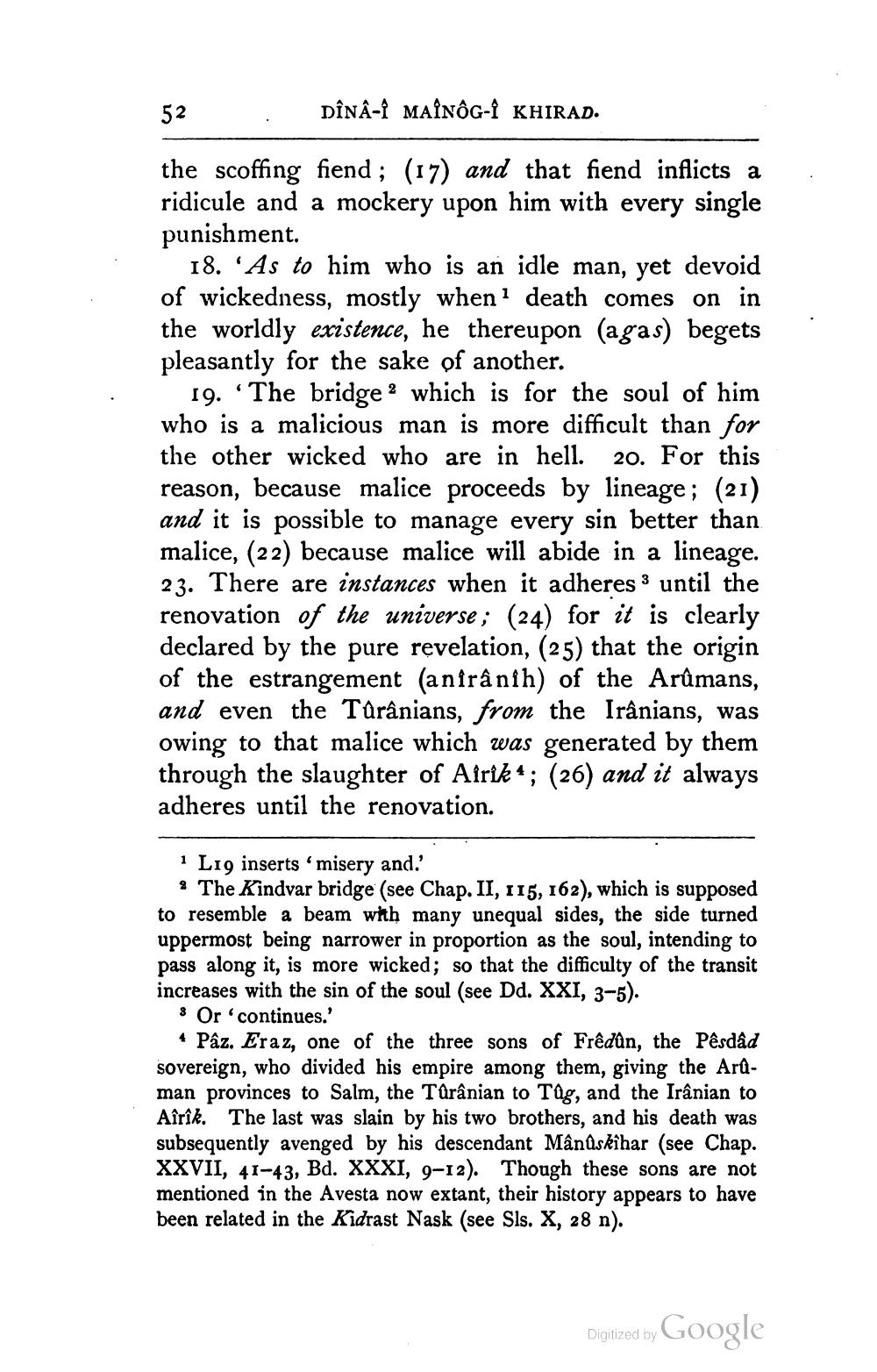________________
52
DÎNA-I MAÎNÔG-Î KHIRAD.
the scoffing fiend ; (17) and that fiend inflicts a ridicule and a mockery upon him with every single punishment.
18. 'As to him who is an idle man, yet devoid of wickedness, mostly when death comes on in the worldly existence, he thereupon (agas) begets pleasantly for the sake of another.
19. The bridge which is for the soul of him who is a malicious man is more difficult than for the other wicked who are in hell. 20. For this reason, because malice proceeds by lineage; (21) and it is possible to manage every sin better than malice, (22) because malice will abide in a lineage. 23. There are instances when it adheres 3 until the renovation of the universe ; (24) for it is clearly declared by the pure revelation, (25) that the origin of the estrangement (anîrânih) of the Arûmans, and even the Tūrânians, from the Irânians, was owing to that malice which was generated by them through the slaughter of Afrik * ; (26) and it always adheres until the renovation.
1 L19 inserts 'misery and.'
The Kindvar bridge (see Chap. II, 115, 162), which is supposed to resemble a beam with many unequal sides, the side turned uppermost being narrower in proportion as the soul, intending to pass along it, is more wicked; so that the difficulty of the transit increases with the sin of the soul (see Dd. XXI, 3-5).
8 Or continues.'
4 Pâz. Eraz, one of the three sons of Frêdùn, the Pêsdad sovereign, who divided his empire among them, giving the Arûman provinces to Salm, the Tûrânian to Tūg, and the Irânian to Aîrîk. The last was slain by his two brothers, and his death was subsequently avenged by his descendant Mânûskihar (see Chap. XXVII, 41-43, Bd. XXXI, 9-12). Though these sons are not mentioned in the Avesta now extant, their history appears to have been related in the Kidrast Nask (see Sls. X, 28 n).
Digitized by Google




